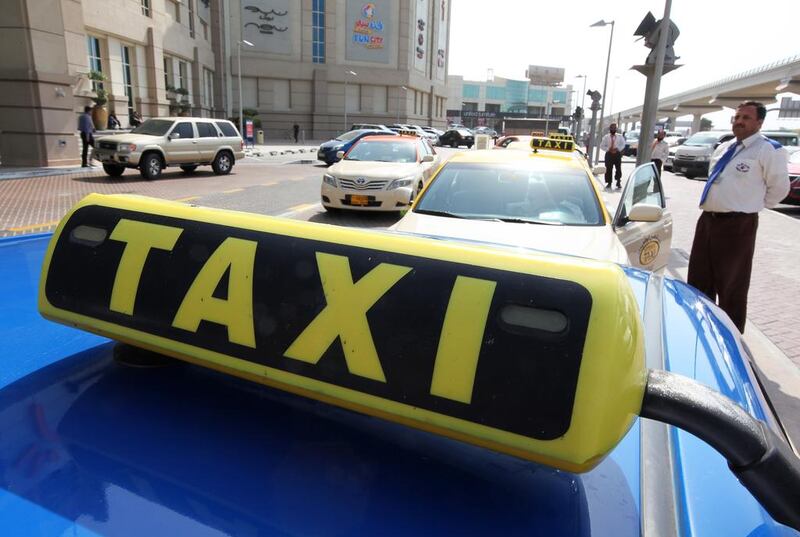DUBAI // Five hundred taxi drivers will receive Bluetooth headsets as part of a road safety campaign launched by Dubai Taxi Corporation and the Roads and Transport Authority.
In a partnership with Jabra, which manufactures the devices, the corporation (DTC) will distribute the hands-free headsets on Thursday to drivers who are part of its red roof fleet.
"On the occasion of back-to-school and part of DTC's continuous initiatives to provide traffic safety awareness, this campaign is in fact not only for drivers but for our customers as well since traffic safety is a concern for society in general," said Ahmad Mohammed Al Hammadi, acting chief executive of DTC.
He added that DTC is making the effort to educate and train taxi drivers on safety issues.
Mr Al Hammadi stressed drivers are prohibited from handling their mobiles while the vehicle is moving or at a standstill, but not fully parked. The penalty is three black points, or four if the violation occurred in a school area. Fines range from Dh200 to Dh800.
"We at the company are aware that the use of mobile phones while driving is not a behaviour that is safe and is punishable by law," Mr Al Hammadi said. "But there are cases that force the driver to make calls while driving. Bluetooth headsets and speakers for the car from Jabra are characterised by their ability to be paired with different mobile phones, allowing the driver to make the call without the need to carry the phone device."
The drivers will be allowed to use the headsets for personal calls as well.
"The headsets are to be used while at work and home since we want to make traffic safety a lifestyle," he said.
Sophia Kagera, of Kenya, said that she has had to tell taxi drivers to stop using the phone a number of times. "It was just one time that a driver agreed to hang up, usually they just ignore me or even worse get angry," said Ms Kagera, a mother of two.
"A few months ago I was picking up my five-year-old son from school. On the way back the driver started talking on his phone, I asked him to stop using it. He ignored me and started behaving angrily. He was speeding and driving recklessly while still on the phone. I was scared for my son's life."
Ms Kagera said she was pleased that the drivers are getting headsets.
"I know they sometimes need to take the calls, so this will make it a better and safer ride for both the driver and passenger," she said.
"Sometimes we have to use the phone," said Abdul Lateef, a driver. "It could be a customer, or another driver who needs help,"
He has been a taxi driver in the UAE for more than 15 years and said that mobile phones are a lifeline for drivers and labourers.
"It makes us feel like we are not alone over here. We have friends and family within our reach. I've known people who become very depressed if their phone is lost or broken. I know we are not supposed to use them while driving, but for taxi drivers like us, there is very little time when we are not driving. We spend most of the day alone in a car, sometimes we need to hear the voice of family or friends just to make us feel normal."
He added that customers who talk to them through the ride also help them feel better.
"We are human beings, we have a need to communicate as well."
malkhan@thenational.ae
Dubai taxi drivers to given Bluetooth headsets for their mobile phone
Five hundred taxi drivers will benefit from giveaway to promote road safety in Dubai.

Editor's picks
More from the national





